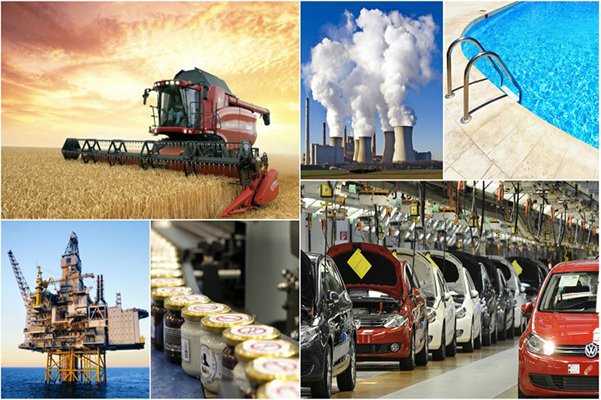What is Aluminium Bronze ?

Aluminum Bronze alloys are a category of copper-based alloys that use iron and nickel in their chemistry, but rely on aluminium as their principal alloying component. Bronze alloys are a subgroup of bronze alloys. Aluminium significantly increases the strength, bringing it to a level equivalent to that of medium carbon steel. In addition to its exceptional corrosion resistance, another advantage of aluminium bronze is that it is also fairly lightweight. Aluminium bronze's early popularity may be ascribed to the material's superior strength and corrosion resistance.
What is Silicon Bronze ?

The alloy known as silicon bronze is a low-lead variant of the brass family and is typically made up of 96 percent copper by weight. The remainder may be fabricated using silicon in combination with a wide number of other alloys, such as manganese, tin, iron, or zinc. Silicon Bronze is well-known for its facile pouring ability, attractive surface quality, and exceptional corrosion resistant capabilities, especially when immersed in liquids and chemicals. These characteristics remain intact even after prolonged exposure. Silicon Bronze was first created for use in the chemical industry, but because to its favourable casting qualities, its application soon spread outside that sector.
Properties of Aluminium Bronze:
In addition to high strength and hardness, great corrosion resistance, good wearing properties, and outstanding fatigue resistance, the family of aluminium bronze alloys also has high strength. The alloys perform well in their designated roles despite the high temperatures. The foundry process for aluminium bronze requires stringent quality control measures. The removal of oxide inclusions is one of the primary challenges that must be overcome. It is possible for the metal to be damaged if it is stirred while it is being cast or while it is still in the furnace. Examine the charts that follow in order to get a comprehensive comprehension of the many measures of aluminium bronze hardness, tensile strength, and other qualities as well as applications for usage.
Properties of Silicon Bronze:
Silicon Bronze is well-known for its facile pouring ability, attractive surface quality, and exceptional corrosion resistant capabilities, especially when immersed in liquids and chemicals. These characteristics remain unchanged even after prolonged exposure. Silicon Bronze was first created for use in the chemical industry, but because of its favourable casting qualities, its use quickly spread to other sectors. The high-strength silicon bronze known as AMS 4616 is an unique alloy that can be readily machined into ball bearing cage assemblies. This material, which contains extra iron, has a higher overall strength and can be machined more easily as a result.
Chemical Composition of Aluminium Bronze :
There are two main subfamilies within the family of aluminium bronzes. Nickel Aluminum Bronze has about 9-11% aluminium, 4% iron, and 5% nickel, while Aluminum Bronze contains around 9-14% aluminium and 4% iron. Both varieties of bronze include around 5% nickel. The corrosion resistance of a material that is already resistant to corrosion is enhanced by the addition of nickel.
Chemical Composition of Silicon Bronze :
Silicon bronze, like the vast majority of other bronzes, is an alloy made of copper; more specifically, the base alloying metal is pure copper, and it is infused with a variety of additional elements. The remaining components generally consist of between 2.5 and 6% silicon and a variety of other metals like aluminium, zinc, lead, iron, manganese, and more. It is fabricated using around 94-96% copper by weight.
 "GOVERNMENT RECOGNISED STAR EXPORT HOUSE"
"GOVERNMENT RECOGNISED STAR EXPORT HOUSE"



 India
India Japan
Japan Russia
Russia United States
United States Saudi Arabia
Saudi Arabia Kuwait
Kuwait Singapore
Singapore Malaysia
Malaysia UAE
UAE Germany
Germany Italy
Italy China
China UK
UK Canada
Canada Iran
Iran Thailand
Thailand South Korea
South Korea Turkey
Turkey Morocco
Morocco Costa Rica
Costa Rica Kazakhstan
Kazakhstan Philippines
Philippines Egypt
Egypt Vietnam
Vietnam Oman
Oman Australia
Australia Qatar
Qatar Portugal
Portugal Mexico
Mexico Brazil
Brazil France
France South Africa
South Africa Jordan
Jordan Spain
Spain Hong Kong
Hong Kong Netherlands
Netherlands Indonesia
Indonesia Taiwan
Taiwan Nigeria
Nigeria Bangladesh
Bangladesh Iraq
Iraq Ukraine
Ukraine Poland
Poland Romania
Romania Cyprus
Cyprus Angola
Angola Colombia
Colombia Norway
Norway Chile
Chile Tobago
Tobago Greece
Greece Czechia
Czechia Belgium
Belgium Sri Lanka
Sri Lanka Myanmar
Myanmar Venezuela
Venezuela